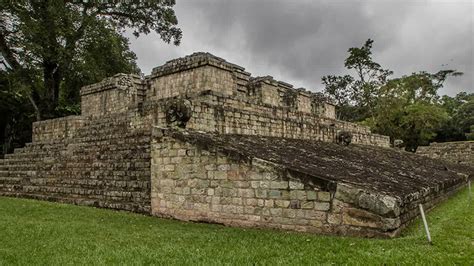Explore the historical timeline of Mexico, from the Pre-Colonial Era to Modern History, including the impact of the Spanish Conquest and the Independence Movement.
Pre-Colonial Era
Contents
The pre-colonial era in El Salvador refers to the period before the arrival of the Spanish in the 16th century. This era is characterized by the presence of several indigenous civilizations, including the Pipil, Lenca, and Maya. These indigenous groups had complex social structures, advanced agricultural practices, and unique religious beliefs. They built impressive cities, such as Cihuatan, and left behind intricate artwork and pottery.
One of the most well-known indigenous groups in El Salvador is the Pipil. They inhabited the western part of the country and were skilled artisans and warriors. The Pipil established a number of city-states and had a hierarchical society, with a ruling class overseeing the labor of the common people. They worshiped a pantheon of deities and had a rich oral tradition that included myths, legends, and histories.
The pre-colonial era in El Salvador was a time of cultural development and exchange. The indigenous civilizations engaged in trade with neighboring groups, exchanging goods such as cacao, textiles, and precious metals. They also developed complex agricultural techniques, including the cultivation of maize, beans, and squash.
Despite the advancements of the indigenous civilizations, their existence was profoundly impacted by the arrival of the Spanish conquistadors. The pre-colonial era came to an end with the Spanish conquest of El Salvador in the early 16th century, marking the beginning of a new chapter in the country’s history.
Spanish Conquest
The Spanish conquest of El Salvador was a significant event that forever changed the course of history for the region. In the early 16th century, Spanish conquistadors arrived in El Salvador, led by Pedro de Alvarado. They encountered fierce resistance from the indigenous Pipil people, who had been living in the area for centuries. Despite facing formidable opposition, the Spanish ultimately prevailed and established their control over the region.
During the conquest, the Spanish employed brutal tactics, including violence and the spread of disease, leading to a significant decline in the indigenous population. They also implemented a system of forced labor, known as encomienda, which exploited the indigenous people for the benefit of the Spanish colonizers. This period of exploitation and oppression had lasting effects on the social and economic structure of El Salvador.
As a result of the Spanish conquest, El Salvador became a colonial territory under the control of the Spanish Empire. The indigenous population was subjugated, and their traditional way of life was disrupted. The Spanish imposed their language, religion, and culture on the native people, leading to the gradual erasure of indigenous customs and traditions.
Despite the harsh impact of the Spanish conquest, it also brought about significant changes to the region. The introduction of new crops, animals, and technologies from Europe transformed the agricultural practices of the indigenous people. The establishment of towns and cities by the Spanish laid the foundation for the urban development of El Salvador.
Overall, the Spanish conquest had a profound and lasting impact on the history and identity of El Salvador. It marked the beginning of a new era characterized by colonial rule, exploitation, and cultural assimilation.
Colonial Period
The Colonial Period in the history of El Salvador began in the early 16th century with the arrival of Spanish conquistadors. Upon the arrival of the Spanish, the indigenous population of the region, primarily the Pipil and Lenca people, faced significant challenges as their lands and resources were taken over by the colonizers. The Spaniards established their colonial rule and exploited the native population for labor and resources.
During this period, the Spanish authorities implemented the encomienda system, which granted the conquistadors and other colonizers the right to demand labor and tribute from the indigenous people. This led to widespread abuse and exploitation of the native populations, as they were forced to work in mines and plantations under harsh conditions. The arrival of the Spanish also brought diseases that devastated the indigenous communities, leading to a drastic decline in their population.
El Salvador was under Spanish colonial rule for nearly 300 years, during which time the region became a major center for the production of indigo, sugar, and other agricultural products. The Spanish also established cities, towns, and religious institutions, leaving a lasting impact on the culture and society of El Salvador. The Catholic Church played a significant role in the colonization process, as missionaries sought to convert the indigenous population to Christianity and establish a strong presence in the region.
Despite the hardships and exploitation faced by the indigenous people during the Colonial Period, the influence of Spanish colonialism also brought about significant changes in the region’s social, political, and economic structures. The blending of Spanish and indigenous cultures resulted in the emergence of a new mestizo identity, and the Spanish language became a dominant force in El Salvador.
Independence Movement
The Independence Movement in El Salvador was part of the broader movement for independence in Central America from Spanish colonial rule. The push for independence in El Salvador was sparked by several factors, including the spread of revolutionary ideas from Europe and the discontent with Spanish rule among the local population.
A key event in the independence movement was the 1811 insurrection in San Salvador, led by criollo elites and supported by indigenous and mestizo people. The insurrection, although ultimately unsuccessful, laid the groundwork for future independence efforts and raised awareness of the desire for self-governance among the Salvadoran people.
The movement gained momentum in the 1820s, culminating in the declaration of independence from Spain on September 15, 1821. This marked the end of nearly three centuries of Spanish colonial rule in El Salvador and the beginning of a new era for the country.
However, the struggle for true independence was far from over, as El Salvador became part of the short-lived Mexican Empire before eventually joining the United Provinces of Central America. It was not until 1841 that El Salvador officially became an independent sovereign nation, a status that has been preserved to this day.
Modern History
The modern history of El Salvador is marked by a series of political and social changes that have shaped the country into what it is today. In the late 19th and early 20th centuries, El Salvador saw significant development and modernization in areas such as infrastructure, education, and industry. However, this period also saw the rise of social and political conflicts that ultimately led to a brutal civil war in the latter half of the 20th century.
During the 20th century, El Salvador experienced significant political and social unrest, with various military dictatorships and oppressive ruling regimes governing the country. This led to widespread inequality, poverty, and human rights abuses, which ultimately sparked the Salvadoran Civil War in the 1980s. The conflict lasted for 12 years and resulted in the loss of thousands of lives, as well as the displacement of many Salvadorans.
Following the end of the civil war in 1992, El Salvador transitioned into a period of reconstruction and reconciliation. The country saw the implementation of various social and economic reforms, as well as efforts to address the legacy of the war and promote national healing. This period also saw the emergence of new political parties and movements, as well as the diversification of the Salvadoran economy through trade and investment.
Today, El Salvador continues to face various challenges related to governance, security, and economic development. However, the country has also made significant progress in areas such as education, healthcare, and human rights. As El Salvador moves forward in the 21st century, it continues to grapple with the legacy of its past while striving to build a more prosperous and equitable future for its people.













